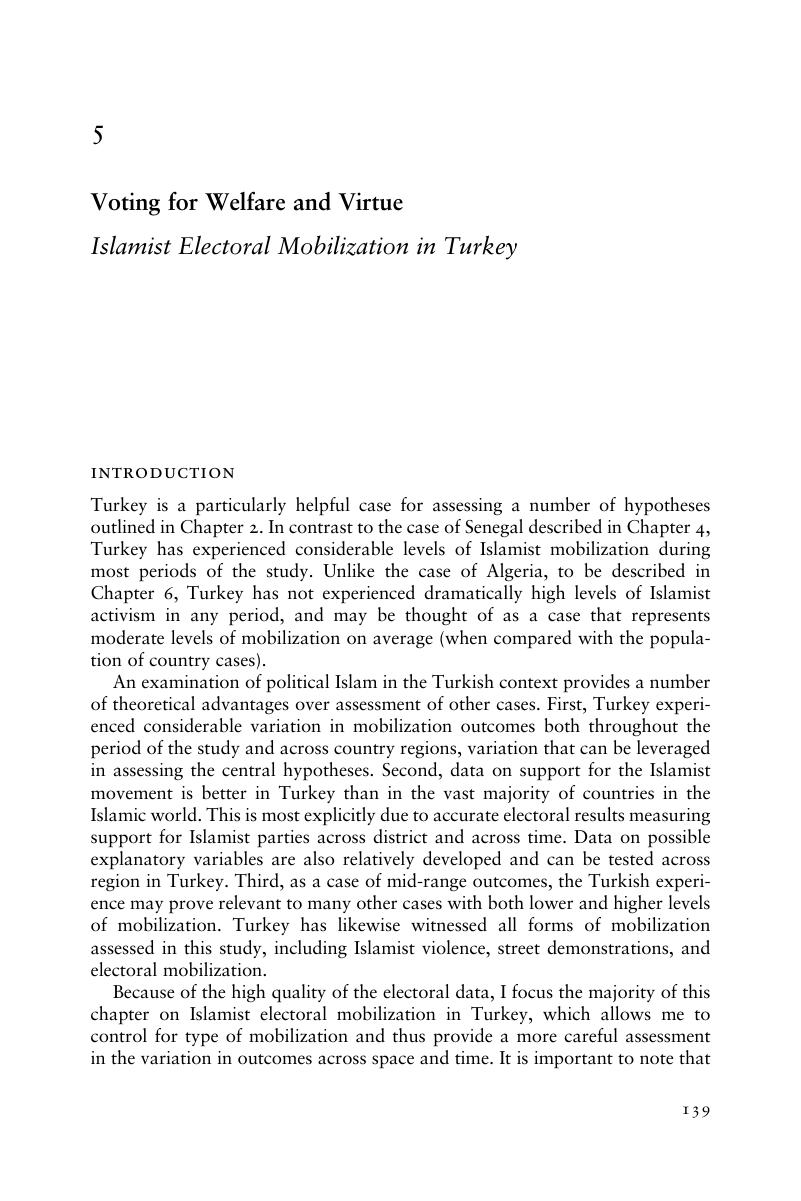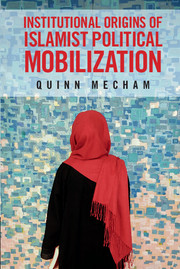Book contents
- Institutional Origins of Islamist Political Mobilization
- Institutional Origins of Islamist Political Mobilization
- Copyright page
- Contents
- Figures
- Tables
- Acknowledgments
- Abbreviations
- Introduction
- 1 Islam and Political Mobilization
- 2 From the Sacred to the State
- 3 A Political Geography of the Sacred
- 4 Explaining Low Islamist Mobilization
- 5 Voting for Welfare and Virtue
- 6 When Islam Defines Politics
- 7 Conclusion
- Epilogue
- Book part
- Notes
- Index
- References
5 - Voting for Welfare and Virtue
Islamist Electoral Mobilization in Turkey
Published online by Cambridge University Press: 23 February 2017
- Institutional Origins of Islamist Political Mobilization
- Institutional Origins of Islamist Political Mobilization
- Copyright page
- Contents
- Figures
- Tables
- Acknowledgments
- Abbreviations
- Introduction
- 1 Islam and Political Mobilization
- 2 From the Sacred to the State
- 3 A Political Geography of the Sacred
- 4 Explaining Low Islamist Mobilization
- 5 Voting for Welfare and Virtue
- 6 When Islam Defines Politics
- 7 Conclusion
- Epilogue
- Book part
- Notes
- Index
- References
Summary

- Type
- Chapter
- Information
- Institutional Origins of Islamist Political Mobilization , pp. 139 - 185Publisher: Cambridge University PressPrint publication year: 2017



